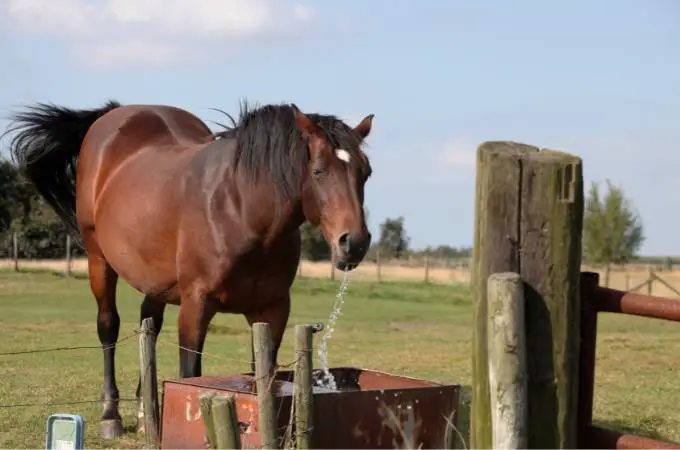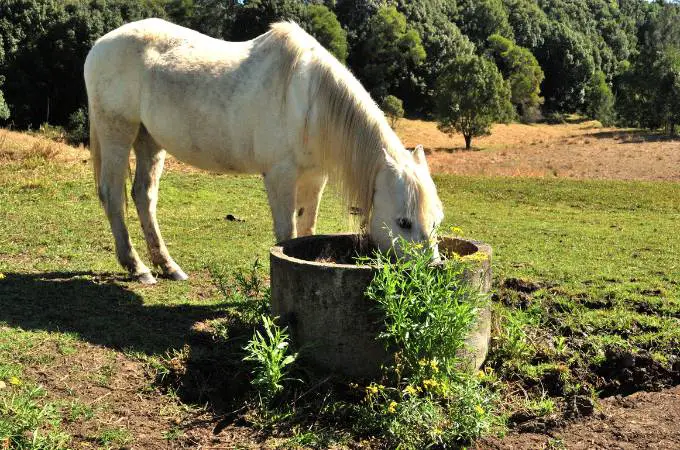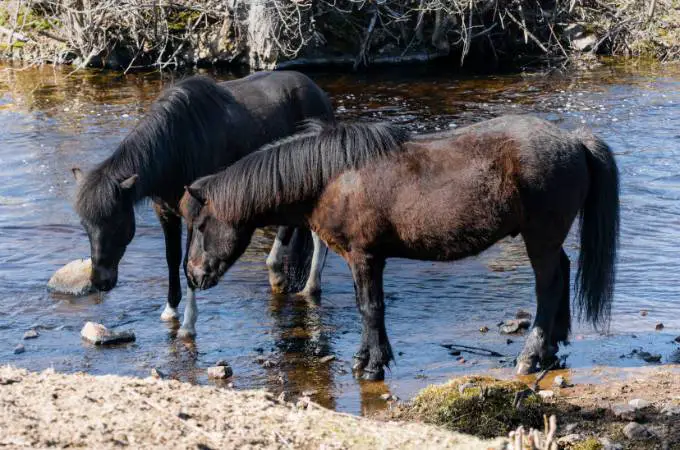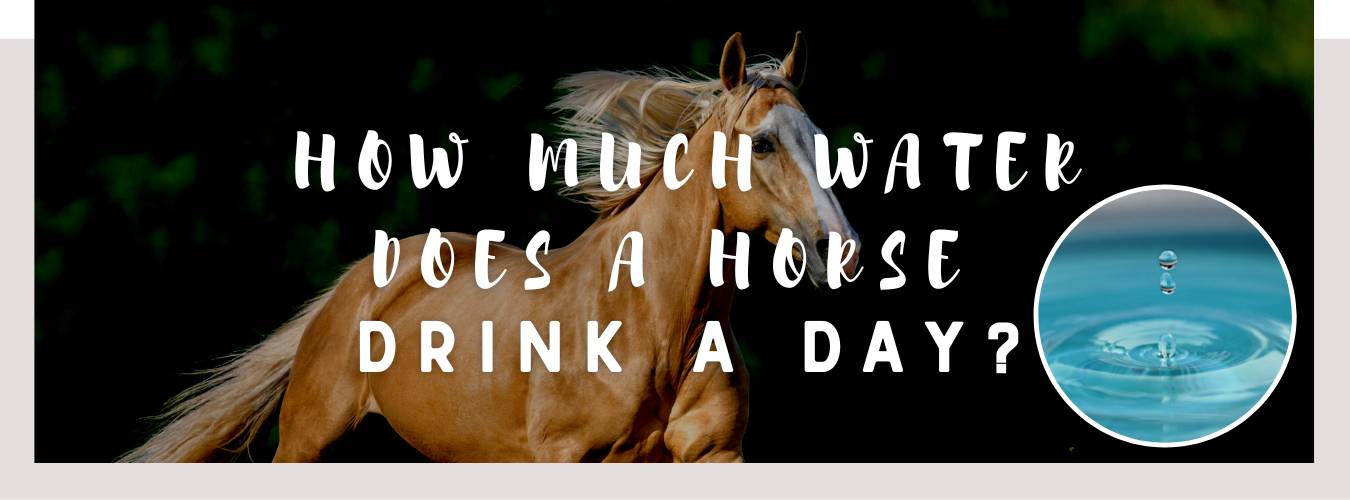
The Importance of Water
Horses need water every day. But how much is enough? It varies, depending on a horse’s lifecycle and its environment.
Hydration is essential for the health of any animal. Sufficient water ensures that the digestive process is normal and protects from colic, dehydration, and other fatal ailments. Surprisingly, it is more complicated than just providing the animal with water.
Many horses refuse to drink water. The famous idiom, “you can lead a horse to water, but you can’t make it drink” is more accurate than one would think.
A horse deprived of food but supplied with drinking water can survive 20 to 25 days. A horse without water may only live 3 or 6 days. After not drinking water for two days. a horse may refuse to eat and exhibit signs of colic and other life-threatening ailments.
How much water and other requirements for a horse’s needs
The average horse needs between 5 to 10 gallons of water a day, depending on its age, weight, and climate
Horses prefer slightly warm water, around 20°C or 68°F, especially in colder weather.
An average adult horse that is not in labor, lactating, or is not carrying extra weight will generally drink 5 liters per 100 kg of body weight. Where temperatures are high or in high levels of humidity, their water intake increases by about 80%.
An animal’s health also affects water intake. If a horse suffers from diarrhea, it can easily become dehydrated even if it drinks normal amounts of water.
You might also like: Can Horses Eat Clover?
Dehydration – how to spot and avoid

It is easy to check if your horse is dehydrated: its heart rate increases above the average of 28 to 40 beats per minute. Its gum color changes due to dehydration. The normal color of a horse’s gums is bubblegum pink.
A healthy horse will have moist gums, while a dehydrated one will have dry gums. Skin elasticity is affected by low water intake too. This is detectable via a skin pinch test which is made along the neck. When pinched, the skin should retract within two seconds.
Colic is still the number one killer of horses and drinking more water is one of the recommended ways to reduce this risk. A horse that is not drinking enough water can begin to experience dehydration and impaction colic in as few as 48 hours.
A horse’s food intake also affects hydration levels. Hay quality is a factor that impacts the risk of colic. It is worth investing in better quality feed for your horse which includes alfalfa and/or grass hay.
Suggestions on How To Improve Water Supply
During the winter, an automatic waterer is the simplest way to keep your horse hydrated. Top of the line waterers feature rugged, insulated polyethylene or stainless-steel units with designs that seal cold air away from the high-capacity valves.
Options like thermostatically controlled heat, self-regulated heaters, immersion heaters, and digital water meters are available. Water temperature is key, especially in colder conditions. Horses will not drink cold water.
Horses have a natural tendency to drink less water in colder temperatures so you need to be diligent and provide them with fresh, clean water at the right temperature. Turning up the heat and keeping the place warm during colder times is important to prevent your horse from drinking less water.
You might also like: How Much Alfafa to Feed a Horse
How to Improve Your Horse’s Water

If horses drink near-ice water, their water consumption drops below the required levels. It should be a top priority to ensure there is a constant supply at an appropriate temperature.
Another task for owners is to make sure the water provided is clean. Small bits of hay, feed, or even manure in a bucket or trough is unhealthy for any horse. Troughs are notorious for algae growth and leaf/debris decomposition, making the water taste bad. Automatic waterers reduce this chore significantly, but they will still need regular cleaning.
Adding electrolytes and offering loose salt to a horse’s feed will encourage more water consumption. A note of caution about electrolytes. Without adequate water consumption, further dehydration can occur. Adult horses need 1 to 2 ounces of salt daily. Loose salt is preferred over frozen salt blocks during the winter.
Some other tips if you believe your horse needs more water are soaking their hay in water for about an hour prior to feeding, making a soupy mash or grain meal, or soaking alfalfa or hay pellets. One flake of hay can absorb 4 to 8 liters of water.
Soaking hay for up to an hour in water reduces carbohydrates, potassium, and dust. Therefore, it would be useful to add in some water.
If you’re going to be on the road for a while, consider hanging a hay net filled with soaked hay to provide extra moisture and keep your horse hydrated.
Conclusion
Hydration is key to a healthy lifestyle. Generally, 20 to 40 liters is enough for one foal, depending on its age, life stage, living conditions, and health. Checking water temperature and keeping it clean is important.
I am a huge animal lover and have four dogs, a Labrador, Jack Russell, Pug, and Teacup Yorkie. I also have a cat and a Cockatiel. I have had pets since I was a toddler, and there was not a day when there wasn’t an animal in my house.









